Archive : Article / Volume 2, Issue 1
- Research Article | DOI:
- https://doi.org/10.58489/2836-502X/002
International Comparisons of Mortality from Diabetes Mellitus and Other Cardiometabolic Diosorders in The Ontopathogenic Model
Member of ISOAD, PhD in Biochemistry, Santa Maria â RS, Brazil.
Goudochnikov V.I.
Goudochnikov V.I., (2023). International Comparisons of Mortality from Diabetes Mellitus and Other Cardiometabolic Diosorders in The Ontopathogenic Model. Journal Endocrine System and Diabetes. 1(1). DOI: 10.58489/2836-502X/002.
© 2023 Goudochnikov V.I., this is an open access article distributed under the Creative Commons Attribution License, which permits unrestricted use, distribution, and reproduction in any medium, provided the original work is properly cited.
- Received Date: 20-12-2022
- Accepted Date: 30-12-2022
- Published Date: 06-01-2023
relative mortality, cardiometabolic disorders, accelerated aging
Abstract
Previously we have studied relative morbidity and mortality in Southern region of Brazil, and recently we have compared these parameters with epidemiologic indices of Argentina and Chile. In the present work we have used the database of World Health Organization (WHO), in order to perform direct comparisons of relative or proportional mortality caused by diabetes mellitus and other cardiometabolic disorders in Argentina and 3 European countries: Spain, France and United Kingdom (UK), during the two chronologic periods: 2008-2010 and 2011-2013. It was shown that age-related dynamics of relative mortality from hypertensive disorders was similar in the countries evaluated, however the patterns of such dynamics for diabetes mellitus and ischemic heart diseases were different in Argentina, as compared to 3 European counties evaluated. On the other hand, the calculation of feminine fraction of mortality has shown in all the 4 countries evaluated significant masculine predominance in mortality caused by hypertensive disorders and ischemic heart diseases in the intermediate age categories, as well progressive increase in feminine fraction of relative mortality, beginning from the age category 50-59 years, thus confirming our earlier proposal about accelerated aging of women with the onset of menopause. It is concluded that ontopathogenic model should be elaborated further by means of analyzing different databases including that of WHO, via international comparisons in various regions of the world.
Abbreviations
AR - Argentina
ES – Spain
FR – France
ICD-10 – International Classification of Diseases, version 10
UK – United Kingdom
WHO – World Health Organization
Introduction And Methodology
Previously we have studied relative morbidity and mortality in Southern region of Brazil [1] and recently we have compared these parameters with epidemiologic indices of Argentina and Chile [2]. In the present work we have used the database of World Health Organization (http://apps.who.int/healthinfo/statistics/mortality/whodpms/), in order to perform direct comparisons of relative or proportional mortality [3] caused by diabetes mellitus and other cardiometabolic disorders in Argentina and three European countries: Spain, France and United Kingdom (UK) during the two chronologic periods: 2008-2010 and 2011-2013. The codes of International Classification of Diseases, version 10 (ICD-10) is presented on descriptions of the figures that contain arithmetic means of mortality in each 3-year period.
Results
It was shown that age-related dynamics of relative mortality for hypertensive disorders was similar in the countries evaluated (fig. 3 and 4), however the pattens of such dynamics for diabetes mellitus and ischemic heart diseases were different in Argentina, as compared to three European countries evaluated (fig.1,2 and 5,6). On the other hand, the calculation of feminine fraction of mortality has shown in all the 4 countries studied the significant masculine predominance of mortality caused by hypertensive disorders and ischemic heart diseases in the intermediate age categories, as well as progressive increase in feminine fraction of relative mortality caused by all 3 cardiometabolic disorders, beginning from the age category of 50-59 years (Fig.7-12), thus confirming our earlier proposal about accelerated aging of women with the onset of menopause [4].
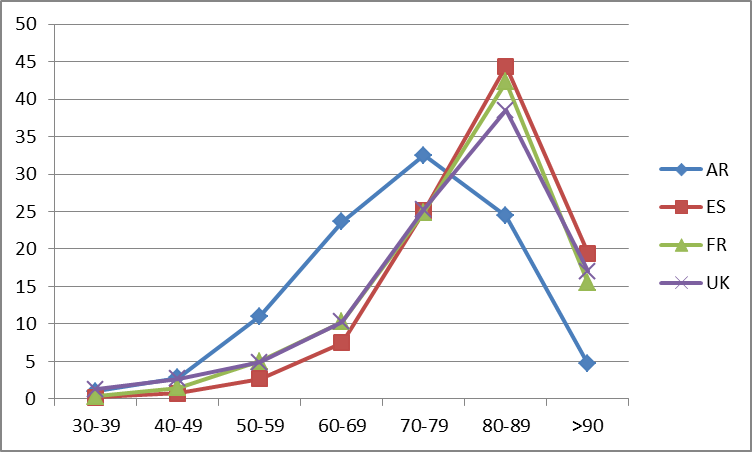
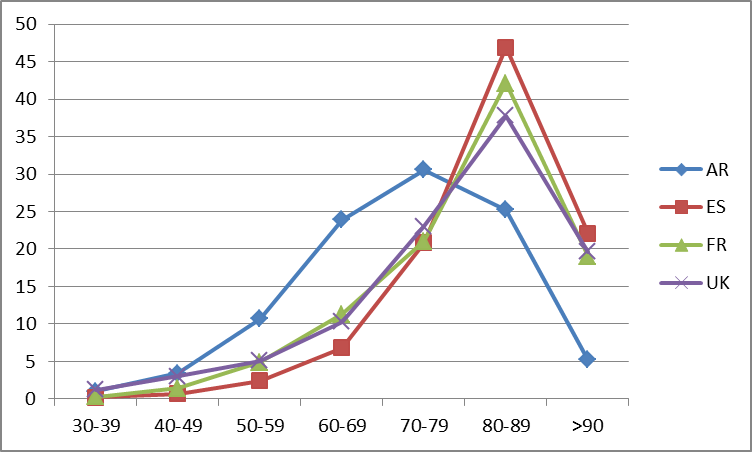
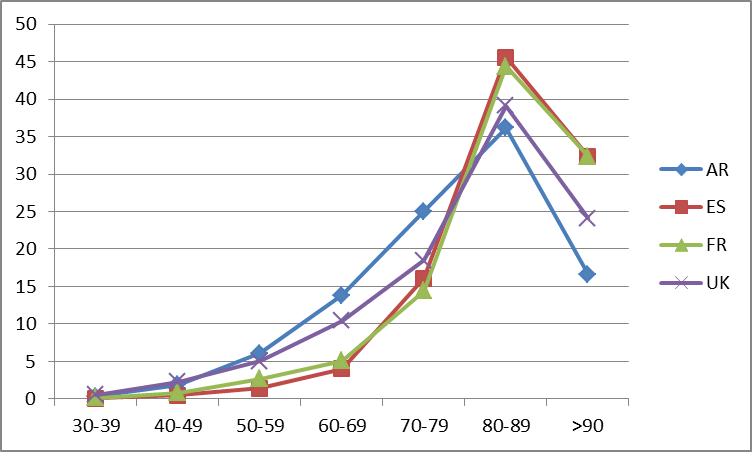
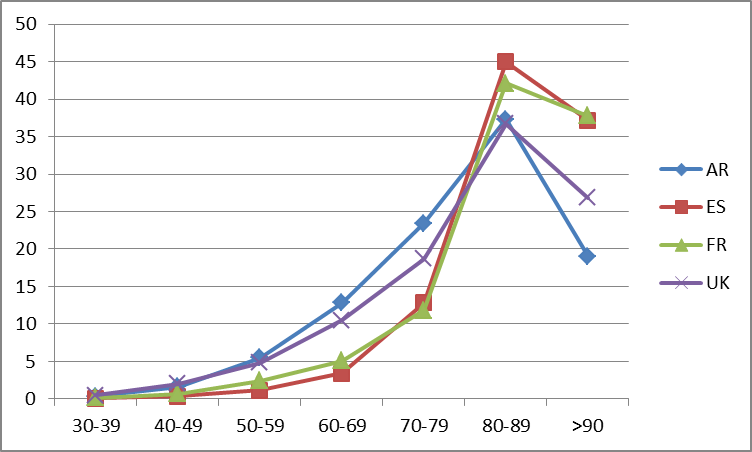
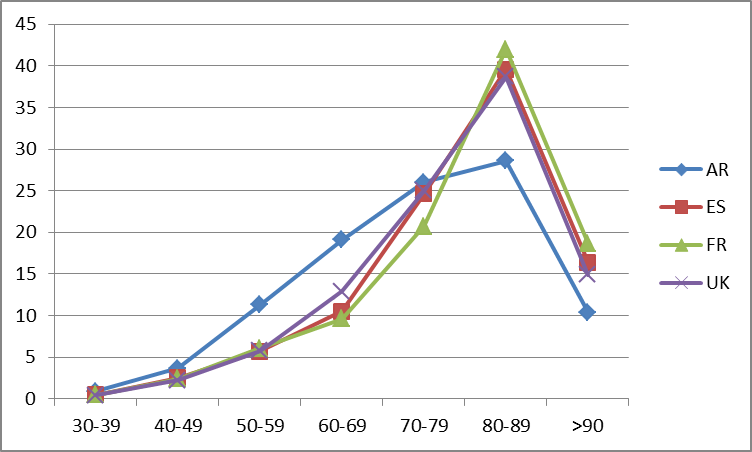
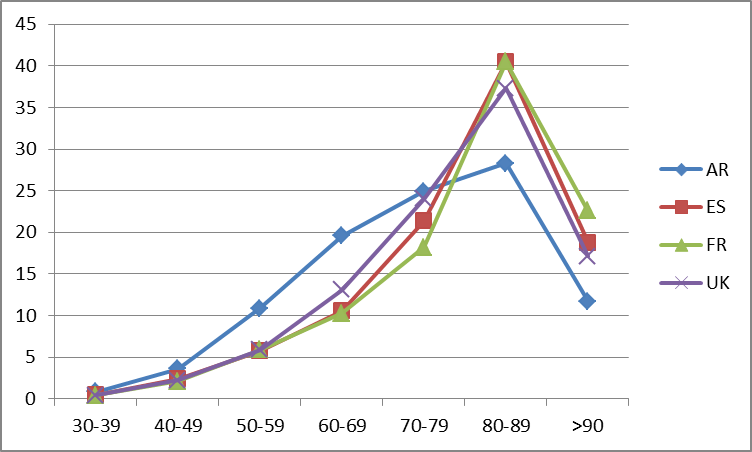
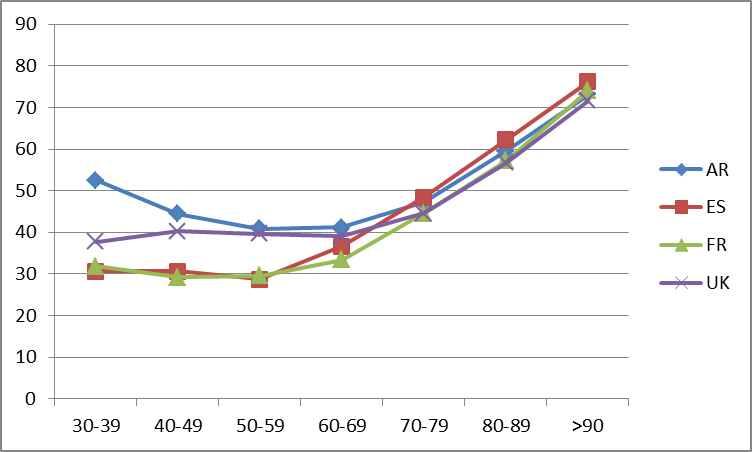
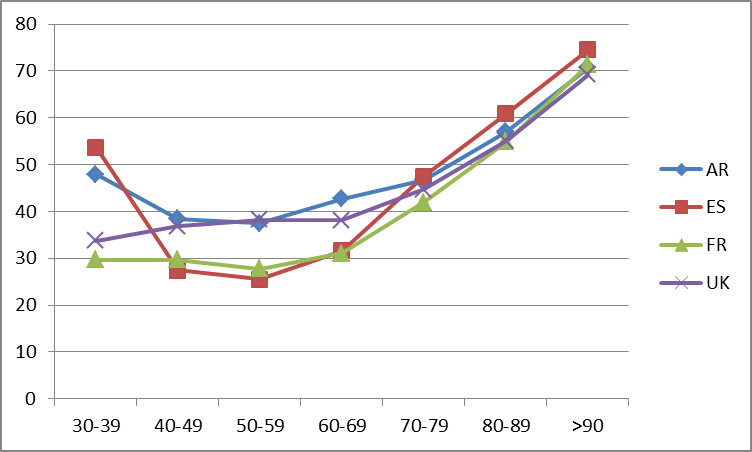
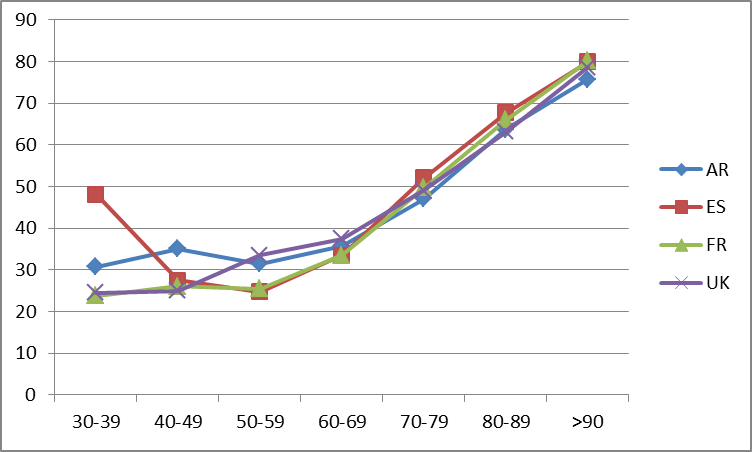
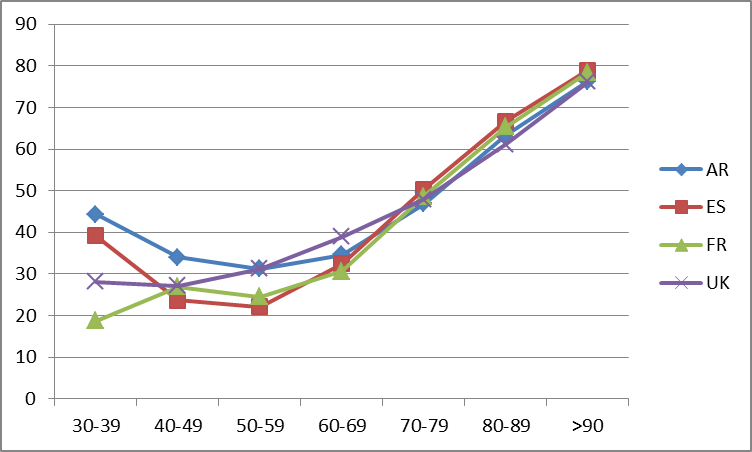
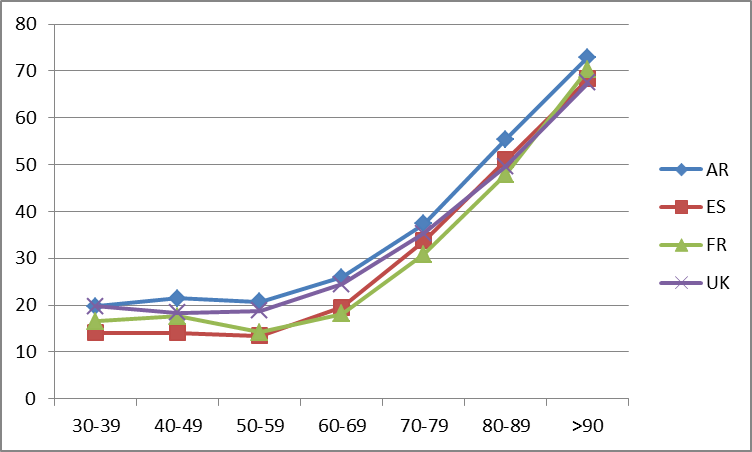
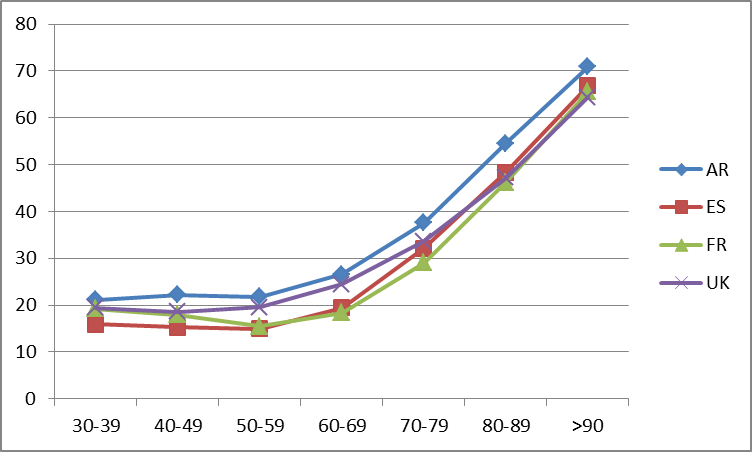
Conclusion
It can be concluded that ontopathogenic model [5] should be elaborated further by means of analyzing the different databases including that of WHO, via international comparisons in various regions of the world.
Acknowledgement
This work was published in abstract form in Portuguese in the Annals of 22. Congresso Brasileiro de Geriatria e Gerontologia, held in virtual form online on 4-6 March 2021
(http://www.cbgg2021.com.br/).
Conflict Of Interest
The author affirms that conflict of interest does not exist.
References
- GOUDOCHNIKOV VI (2005) [Morbidity and mortality in disorders related to metabolic syndrome: Age-related patterns and gender differences in Brazilian states of Southern region]. Revista Científica Jopef (Curitiba), 2: 97-99 (in Portuguese)
- GOUDOCHNIKOV VI (2019) Age-related dynamics and gender differences in morbidity and mortality associated with metabolic disorders: Regional, chronologic and international comparisons. Metabolic Disorders (Plainsboro), 1:1-5
- DE ALMEIDA FILHO N, ROUQUAYROL MZ (2002) [Introduction to Epidemiology]. Rio de Janeiro: Medsi (in Portuguese)
- GOUDOCHNIKOV VI, PROKHOROV LY (2012) [Accelerated aging with the onset of menopause: Possible connection to hormonal changes and stress proteins]. Problemy Stareniya Dolgoletiya (Kiev), 21: 274-279 (in Russian)
- GOUDOCHNIKOV VI (2015) Gender differences of age-related morbidity and mortality: On the way to ontopathogenic model. Journal of Developmental Origins of Health and Disease, 6: S50 (Abstract)


